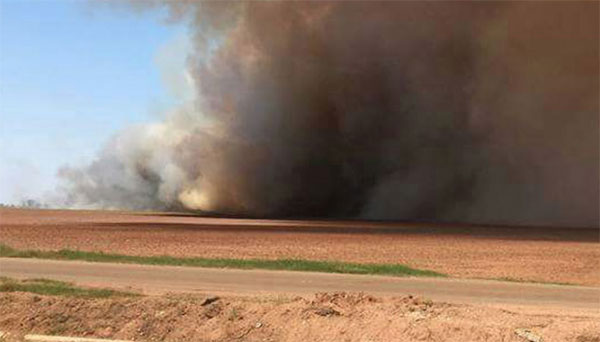Update on active submissions filed with the CEC Secretariat
Montreal, 19 December 2016—The Submission on Enforcement Matters (SEM) process of the Commission for Environmental Cooperation (CEC) is progressing on several current submissions that have been filed with the CEC Secretariat. Here is a status report on the most recent developments.
Monterrey VI Aqueduct
Update: On 26 September 2016 the CEC Secretariat received a revised submission and requested a response today from the Government of Mexico. Now the Party in question has 60 working days to provide a response.
Submission SEM-16-002 (Monterrey VI Aqueduct) asserts that Mexico is failing to effectively enforce its environmental laws with respect to the Monterrey VI Aqueduct project. The Submitter asserts that the transfer of water by pipeline from the Pánuco River in the Mexican state of Veracruz to the City of Monterrey, in the Mexican state of Nuevo León, will have adverse environmental impacts in Nuevo León, Veracruz, and two other states between these two locations, Tamaulipas and San Luis Potosí.
Management of Analog TV Waste
Update: On 2 December 2016 the CEC Secretariat determined not to recommend the preparation of a factual record. The process was therefore terminated.
Submission SEM-15-002 (Management of Analog TV Waste) was filed by several individuals and NGOs in Mexico, asserting that while millions of TV sets are being discarded as a result of the so-called "analog blackout" (the conversion from analog to digital TV broadcasting), a management plan required by Mexican law is not being implemented.
Mexico may provide a follow-up report to the public on government actions taken during the next Council Session in June 2017.
La Primavera Forest
Update: On 4 November 2016 the CEC Secretariat informed Council that the Secretariat considers that the submission warrants development of a factual record.
Submission SEM-15-001 (La Primavera Forest) was filed by two individuals in Mexico, asserting that the Santa Anita Hills housing development project is causing the destruction of a netleaf oak forest, and questioning the legality of the change in land use from forest to urban area and the construction of houses in the vicinity of La Primavera Forest.
The Council has until 14 February 2017 to vote whether the Secretariat may develop a factual record.
Agricultural Waste Burning in Sonora
Update: On 5 September 2016 the CEC Secretariat received a response from the concerned government Party and began considering whether to recommend a factual record.
In Submission SEM-16-001 (Agricultural Waste Burning in Sonora) the Submitter asserts that Mexico is failing to effectively enforce its municipal air quality laws in relation to the burning of agricultural waste in Caborca, Sonora.
The Secretariat has until 24 February 2017 to determine, in light of the response, whether the submission merits the development of a factual record.
The CEC SEM process
The CEC Submissions on Enforcement Matters process supports public participation, information-sharing between governments and the public, and transparency and openness in the effective enforcement of environmental law in North America. If you have reason to believe that an environmental law is not being effectively enforced by Canada, Mexico or the US, the SEM process may address your concerns.
Want to learn more about the SEM process? Please watch this two-minute video for an introduction:

In Submission SEM-16-001 (Agricultural Waste Burning in Sonora) the Submitter asserts that Mexico is failing to effectively enforce its municipal air quality laws in relation to the burning of agricultural waste in Caborca, Sonora.
The CEC SEM Process
The CEC Submissions on Enforcement Matters process supports public participation, information-sharing between governments and the public, and transparency and openness in the effective enforcement of environmental law in North America. If you have reason to believe that an environmental law is not being effectively enforced by Canada, Mexico or the United States, the SEM process may address your concerns.
As of 1 July 2020, the CEC’s SEM process is governed by USMCA Articles 24.27 and 24.28 of the Environment Chapter of the free trade agreement between Canada, Mexico and the United States (CUSMA, T-MEC, USMCA).
Want to learn more about the SEM process? Please watch this two-minute video for an introduction: